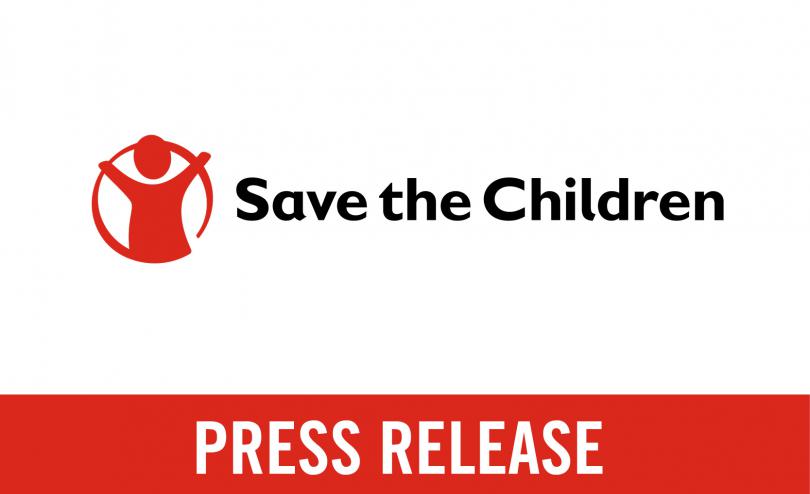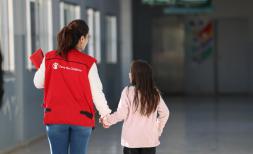COVID-19 left children in India anxious, facing more violence, with rise in child labour – study

One in four children across the country had disturbed sleep as a result of stress from the pandemic
More children ended up in children labour during the pandemic
One quarter of parents reported scolding or punishing their children more
NEW DELHI, 5 July 2022: Children across India had trouble sleeping, faced more violence at home and greater numbers were forced into child labour during the COVID-19 pandemic, according to new research by Save the Children.
A survey of 4,000 people from six states – one from each of six geographic regions - looked at the impact of the pandemic on children in India in the 18 months between June 2020 and December 2021 with the results prompting calls for greater resources for a toll-free helpline for children.
The study found children’s mental wellbeing was negatively impacted by being isolated from friends during lockdowns, with 27% feeling lonely and increased cases of substance abuse. Nearly one in 10 children said someone in their friendship circle was using drugs or other addictive substances, and 3% of child respondents said they were using these substances.
The research also showed that 39% of children across the country were worried about death, illness, or separation from a loved one during the pandemic, with one in four children reporting disturbed sleep as a result of stress.
When asked whether they had observed any changes in their child’s behaviour, one in four parents said their children had experienced a sudden emotional or behavioural change (27%) and abandoned previous play habits (29%).
Parents also reported they had increasingly resorted to violent behaviour against their children during the pandemic. About one in four parents said they had scolded or punished their children more since the pandemic began as financial worries mounted, with more than three-fifths (62%) of households reporting a drop in income from March 2020 to December 2021.
The number of children in child labour rose to 5% post COVID from 4% before the pandemic.
Since the start of the pandemic, over half a million people in India are understood to have died from COVID-19 during three deadly waves although the actual figure is believed to be far higher.
Anindit Roy Chowdhury, Chief Programme Officer at Save the Children India, said:
“We are shocked and disturbed by these findings, which show the mental and physical impact on children over 18 months of the COVID-19 pandemic were severe and incredibly harmful. Lockdowns not only led to reduced socializing amongst children, but also increased the intensity of different emotions that parents and children were feeling. This brought a complex array of challenges that had mental health repercussions for children and adolescents.
“Our assessment has shown an increase in feelings of loneliness, anxiety, anger, grief and substance abuse among children. These findings are devastating for parents to learn, and for policy makers to hear, and must spur immediate action.
“We hope this serves as valuable evidence to influence and support effective measures taken by government of India to respond to the changes that have taken place in the mental and physical health of the children of India.”
In the wake of the findings, Save the Children is calling on the government of India to allocate more funding to frontline child protection services, including strengthening the national Childline toll-free number (1098) and making sure it is accessible for all children in distress. The helpline was set up in 1996 and receives about 5 million calls a year.
The government must also urgently develop a policy for Child and Adolescent Mental Health which can be used to enforce positive mental health. Along with this there should be provision of mental health and psychosocial support to combat the impact of COVID-19 for children, parents, caregivers, educational personnel and their communities.
Save the Children has worked in India for more than 80 years, across 18 states, on issues related to education, health, protection and humanitarian needs of children, especially for those who are the most deprived and marginalized.
iSince the start of the pandemic, Save the Children has worked to train community health teams and child protection case workers in the states of West Bengal, Jharkhand and Delhi on Psychosocial First Aid (PFA), for them to respond to stress and trauma management among the children and caregivers. In Rajasthan, Save the Children has run the “UMEED” helpline in partnership with local government and local NGOs.
NOTE TO EDITORS
For the report, 4,052 respondents (2,743 adults and 1,309 adolescents) spread across 24 districts in six states, namely Madhya Pradesh, Jharkhand, Delhi, Karnataka, Maharashtra and Assam, were surveyed between June 2020 and December 2021.
For further enquiries please contact:
Geeta Lama, Media Manager [Delhi]: geeta.lama@savethechildren.in
Daphnee Cook, Head of Global News [Nairobi] daphnee.cook@savethechildren.org
Our media out of hours (BST) contact is media@savethechildren.org.uk / +44(0)7831 650409
Please also check our Twitter account @Save_GlobalNews for news alerts, quotes, statements and location Vlogs.




